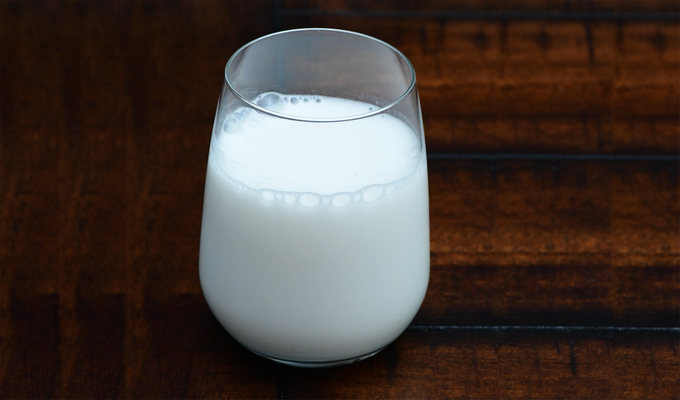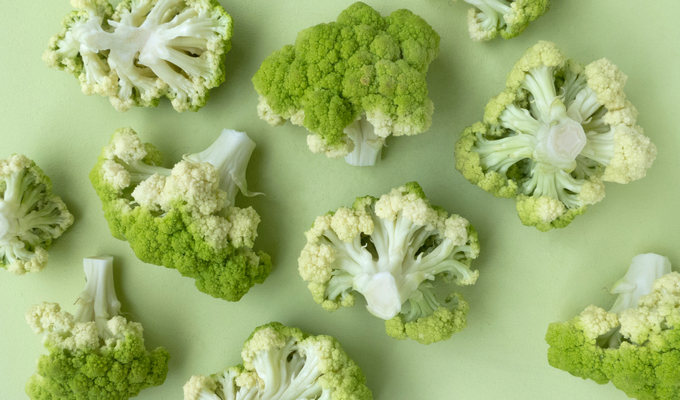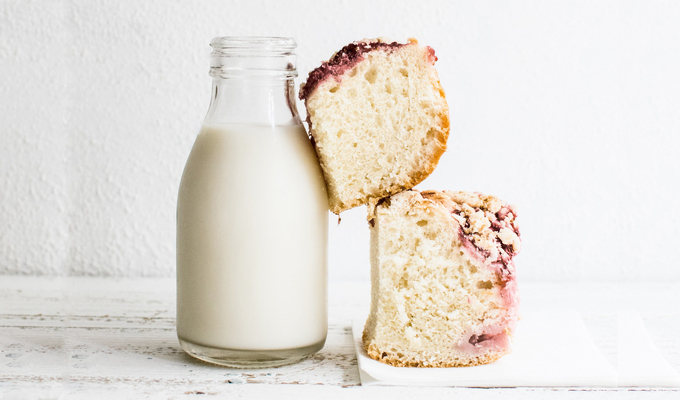Calcium-Rich Foods. Full List.
Calcium is needed in many organs and for many bodily functions.
If you consume too little calcium, your body relies on its reserves in the bones to ensure its functions. Between the bones, the digestive tract and the excretory organs therefore a constant calcium exchange takes place, which ensures that а constant calcium level is maintained in the blood. The most important function of this mineral in the human body is the building and maintenance of bones and teeth. The bones also serve as calcium storage, from which the mineral can be released when needed. In addition, this mineral is important, inter alia, for:
- the blood clotting
- the function of muscles and nerves
- the release of certain hormones and enzymes
- the cell structure
Calcium intake in the body is mainly in the small intestine and is closely related to vitamin D, which promotes absorption from the intestine and incorporation into the bones.
Your daily need for calcium
A healthy adult should consume about 1000 mg of calcium a day with food. Teenagers (10-19 years old) need something more, because the foundation for later bone health is laid at an early age. A shortage of calcium in adolescence in old age is always accompanied by an above-normal bone loss and an increased bone fragility, ultimately with an increased risk of osteoporosis. Even during pregnancy and lactation, the body needs а little more calcium, especially when it comes to young mothers.
However, recent studies have shown that too much calcium is detrimental: particularly in women, the risk of heart attack and stroke increases if more than 1500 mg per day of this microelement is taken over а longer period of time.
Is calcium-rich foods heat sensitive?
Cooking, baking and cooking processes, minerals, as opposed to vitamins, little or no harm. Minerals such as calcium are not sensitive to heat, which means that they remain stable during cooking and are not destroyed.
Only with very long cooking, it may be that the minerals are flushed out of the vegetables, for example. However, if the cooking water is used to prepare the sauce or otherwise served, the minerals are not lost.
Calcium-rich foods. List
There are many calcium-rich foods that should be part of a varied diet. What they are and how much they contain this mineral, we have listed below.
Milk
Adults should take 1000 – 1100 mg of calcium daily.
Milk and dairy products are the leaders in the list of calcium-rich foods, and it is not for nothing that all nutritionists recommend eating milk, yogurt or cheese every day. A glass of milk (200 ml) provides approximately 240 mg of calcium - the fat level has no significant effect on the content of this mineral.

Yogurt and cheese: calcium-rich foods
Cheese and yogurt are also important calcium-rich foods. A cup of yogurt at 150 g provides about 180 mg of calcium.
For example, while а portion of mountain cheese (30 g) may contain as much as 330 mg, American Cheese have 195 mg, Camembert have 180 mg and Feta Cheese have only 35 mg, Cream Cheese as low as 24 mg.
Rule of thumb for everyday life: the harder the cheese, the higher the calcium content.

Calcium-rich foods. Vegetables: kale, broccoli, wholegrain cereals and legumes
In addition to calcium-rich foods such as milk and dairy products, green vegetables can also contribute to calcium supply to some extent. Kale in particular is one of the main calcium-rich food: a serving of 300 g of cabbage leaves contains 636 mg of the valuable mineral.
Mangold, fennel and spinach also contain over 200 mg per serving.

Mineral water
Those who cleverly select their "thirst quencher" can improve their own calcium supply. Because even mineral water can contain significant amounts of mineral. As rich in calcium, a mineral water may be called if it contains at least 150 mg per liter. Some manufacturers also offer products with extra calcium (for example, starting at 300 mg).
Keep in mind: daily should be taken а total of 1000 - 1100 mg of this microelement - so, only with the help of water it can not be done. You definitely need calcium-rich foods.
The following recommendations will show you, how much calcium-rich foods you need to consume per day, to meet your daily calcium requirement:
- 2 slices of Edam (about 50 g) plus 1 cup of low-fat yoghurt (150 g) plus 1 glass of low-fat milk (150 ml) plus 1 portion of broccoli (200 g) plus 1/2 liter of calcium-rich mineral water.
- 1/4 liter of milk plus 1 cup of yogurt plus 2 slices of cheese
- 200 g herb or fruit quark plus 1 serving of rice pudding or pudding plus 1 portion of camembert
- 1/2 liter of milk plus 50 g of cheese
- 1/3 liter of buttermilk plus 60 g cheese + 250 g yoghurt
- 1/5 liter of kefir plus 60 g of cheese plus 300 g of rice pudding
- 1 liter of milk
It is recommended to always distribute the calcium intake over several meals.
This mineral should always be taken with vitamin D, as it can not be incorporated into the bones without it. Instead, it deposits in the vessels and can lead to an increased risk of heart attack.

